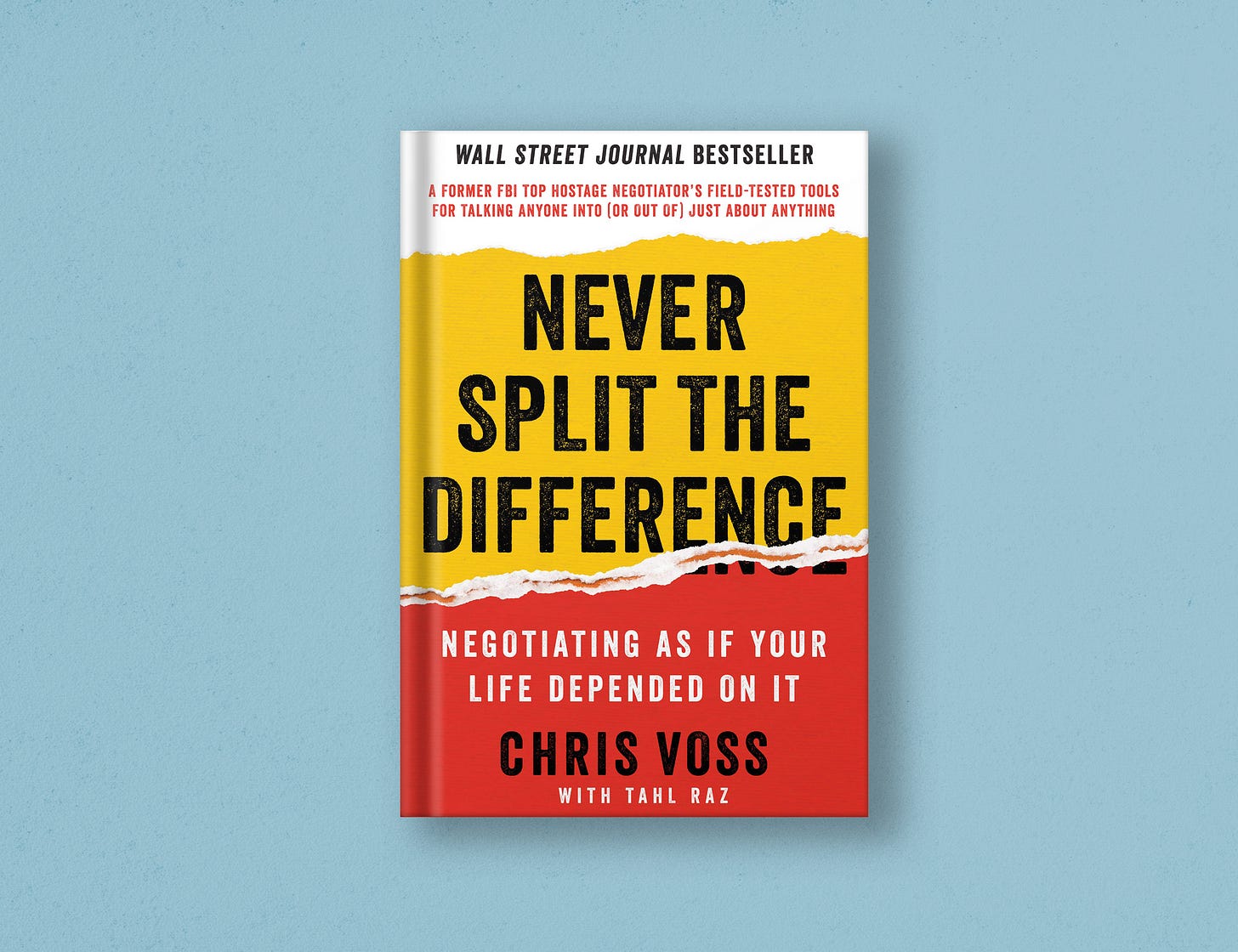Never Split the Difference - Negotiating as if your life depended on it
Written by Chris Voss with Tahl Raz
⏱️ Three Sentence Summary
Negotiation exists beyond the world of business; on a daily basis, we negotiate with everyone from total strangers to our friends and families.
Listen carefully, use the mirroring technique, label emotions and ask calibrated questions to build a relationship and extract information from your counterpart.
The "Ackerman" model provides a 6-step template that automatically incorporates many of the guidelines in the book.
🪞 Reflections
When you're negotiating for hostages, you either win or people die. That's why Voss' principles are so effective - they have to work. But no one operates alone, so they also have to be teachable. In fact, the principles in this book are so simple and actionable that I think it would be impossible to read them and not immediately become a better negotiator.
As I learned, I found myself in a cyclical 3-step routine of reading, reflecting, and testing Chris' strategies. Even though the approaches took his entire two-decade career to develop, I was still surprised by how successful they were. Again, the true strength of these negotiation tactics lays in their ease of implementation. One of the other reasons why the advice is so valuable, however, is that many lessons are broadly applicable to situations beyond the scope of traditional negotiation. As Chris says: "life is negotiation".
Each chapter is largely made up of two parts - FBI experiences and negotiation lessons. The problem with Never Split the Difference is that Chris' FBI tales are short and needlessly shallow. The stories are used in an attempt to ground the lesson at hand, yet they just don't contain enough details to be truly engaging. The man spent a large amount of his life in gut-wrenching scenarios with kidnappers and terrorists, yet the lack of details and emotional depth in his stories left me racing through them to get to the next negotiation strategy. That's not to say the stories detract from the book's quality, but I left each chapter feeling that Chris left a lot on the table.
💥 Personal Impact
After reading the first two chapters, I took my newfound knowledge of mirroring and labelling everywhere I could, testing the two techniques on various strangers and friends.
It probably sounds strange to think of negotiating with good friends and random strangers, but I promise it's less weird than you think. As I hinted at above, many of the techniques are just about building relationships. Friends, family and strangers are therefore the perfect subjects!
Over and over, I was surprised by the things I learned about these people: Interests and hobbies I had never heard them talk about, personal struggles and relationship histories. I felt like some sort of emotional intelligence guru! Since then, I have consciously worked to continue using these strategies, integrating them into my reflexive way of conversing. The fact that I'm yet to feel like any of the tactics lack value is a testament to their quality.
Unfortunately, to date, I haven't had many opportunities to use some of the bargaining tactics. But negotiation is inevitable and Never Split the Difference is a book I will certainly be coming back to.

